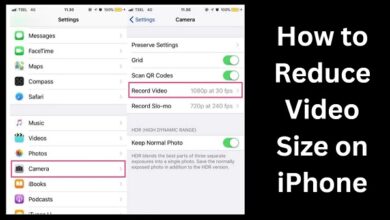Why Marketing is Important For a Good Website

Marketing matters for a good website because it brings in visitors, boosts brand visibility, and makes sure the site engages users and turns them into happy customers.
I’ve wanted to write this article for a while because I’ve met many clients who never thought of hiring a marketing expert to build their website. It’s odd because they’d hire pros for their physical store or product development. While clients know how they want their site to look, they often don’t know how to set it up for successful sales.
People see a website like a regular store, but it’s different. Websites are porous, and customers can enter from any page. There’s no sales assistant guiding them. To succeed online, we must turn these ideas into websites that really sell, whether it’s a store with many products or a service like plumbing.
The challenge is not just getting customers initially, but also keeping them engaged on your site and convincing them to buy your brand or products.
A web developer and a marketing expert both play crucial roles in the success of a website, but their responsibilities are distinct. The web developer focuses on the technical aspects and the functionality of the site, while the marketing expert guides the strategic aspects such as messaging, design, content creation, and SEO to effectively sell the company’s products or services.
Web developer vs. Marketing expert
A web developer is a technical expert who codes and creates the structure of a website. Their focus is on ensuring the site functions smoothly and meets the design specifications.
On the other hand, a marketing expert is responsible for the strategic aspects of the website. They guide the messaging, design, content creation, SEO, and customer journey to effectively sell the company’s products or services. They also monitor analytics and make adjustments as needed to optimize the site’s performance.
In essence, while a web developer builds the website, a marketing expert ensures it fulfills its purpose – whether that’s promoting a brand, selling products, or something else entirely. Both roles are essential for a successful website.
It’s common for small businesses to rush into building a website without proper planning, which can lead to wasted time and resources. Even if hiring a marketing expert isn’t feasible, it’s important to consult with someone knowledgeable and create a plan.
This plan should be reviewed and refined by all stakeholders in the company. After a week, revisit the plan to ensure it still aligns with your goals before starting the development process.
A useful tool in this process is a digital mock-up. Just like you wouldn’t build a house without a blueprint, a mock-up helps visualize the website design and functionality before development begins. This ensures everyone, including the web developer, understands what’s being built.
| Key | Web Developer | Marketing Expert |
|---|---|---|
| Role | A technical expert who codes and creates the structure of a website. | Responsible for the strategic aspects of the website. |
| Focus | Ensuring the site functions smoothly and meets the design specifications. | Guiding the messaging, design, content creation, SEO, and customer journey to effectively sell the company’s products or services. |
| Responsibility | Building the website. | Ensuring the website fulfills its purpose – whether that’s promoting a brand, selling products, or something else entirely. |
| Additional Duties | Understanding what’s being built using tools like a digital mock-up. | Monitoring analytics and making adjustments as needed to optimize the site’s performance. |
Let’s talk about the basics of marketing for websites:
A business website isn’t just a web address with some code—it’s more than a colorful online brochure. It’s a dynamic tool to showcase your brand, share your values, promote your products and services, and importantly, attract potential customers. A great website for marketing isn’t just about looking good; it should be easy to use, filled with helpful information, work smoothly, and leave a positive and lasting impression.
It’s crucial to spot bad website design to succeed online. Our tips apply to all websites, whether it’s an online store, a service site, or a brand promotion page.
Here’s what to avoid when building a website:
- Poor language and spelling mistakes
- Low-quality visuals – ensure good photos for a strong first impression
- Bad user experience – unclear navigation between pages or products
- Using non-licensed material, like random internet images, can lead to legal trouble
- Insufficient information about products or services
- Unbalanced use of fonts and excessive uppercase headers can be overwhelming
- Outdated or broken landing pages
- Lack of clear calls-to-action on web pages
- Poor search functionality, especially in e-commerce sites
- External links that navigate visitors away without opening in a new tab/window
- Missing GDPR, terms and conditions, privacy, or security information
- Slow page speed and not optimized for mobile devices
- A useless 404 page without functionality to guide visitors to the desired content.
Here’s what to focus on:
Build, Design, Layout, Texts
The visual part of your website is what visitors notice first.
HOME PAGE
- Make your home page pleasant, memorable, and complementary to your text. Good photos or illustrations are crucial because people look at images before reading.
- Try different home pages and A/B tests to see what works best. Use tools like Google’s Optimize or Nelio for WordPress.
- Update your home page regularly, preferably monthly. This gives you time to analyze what works best and keeps things fresh for returning visitors.
- Ensure clear and appropriately weighted texts/fonts based on their importance and your priorities.
OTHER PAGES
Think of every page, not just your home page, as a potential landing spot. Visitors might come from your home page or directly from a search engine. You want to keep them interested.
- Consider how to encourage them to learn more and explore your site.
- On pages about your product, add a Call-to-Action (CTA) in the text, like signing up for a newsletter or requesting a demo.
- In blog posts about the industry, insert a brief section explaining your company’s role or suggest more articles before readers click away. Place these in the middle of the text, clear but not confusing, and don’t overdo it— one suggestion is enough. Small companies can easily add relevant suggestions within the post.
NAVIGATION
Keep your navigation menu simple, don’t overload it with too many links. Focus on the essentials.
- Consider placing ‘About’ in the Footer.
- Some companies are moving ‘Pricing’ to the footer, encouraging users to explore services before seeing prices. This works well when there’s a free version or you want users to engage with the brand first. Users truly interested in pricing will make the effort to find it in the footer.
FOOTER
- Experienced users often check the footer for specific info. Organize it well with all the essential details: navigation items, About, Pricing, social media links, legal docs, search field, or newsletter sign-up.
- If your site has a lot of content, consider including a site map for easy navigation.
- Including links to past newsletters in the footer is a great way to add more content, even if they’re hosted on a different platform like Mailchimp.
LANDING PAGES
- Treat your website as a daily tool to connect with users.
- Landing pages are handy for marketing campaigns. They’re not permanent and should be regularly updated.
- When running campaigns or promotions, direct ads to a landing page. Customize the messaging for the specific campaign, include a call-to-action, remove top navigation, and use a single link to guide users to your site. For instance, provide a link to an article related to the campaign topic.
TEXTS, FONTS, IMAGES
- Before you start your website, create a simple design guide. Decide on colors, fonts, and how your logo will appear. This helps avoid surprises and keeps everything consistent.
- Invest in professional copywriters for your texts—it’s worth it. Whether it’s messaging, product descriptions, blog posts, or articles, professionals make a difference.
- Always use images you have the right to use. Don’t risk using internet photos. If it’s a partner’s image, get written permission.
Learn from Others for a good Website
- Check out your competitors’ websites. Note what you like and dislike.
- Study high-traffic websites, especially from big brands. Adapt their layouts and designs to fit your needs, especially if you’re on a tight budget.
- If you have disagreements on design, use A/B testing and analytics. Tools like Google Analytics or Hotjar help you see how users interact with your site. Keep an eye on events like 404 errors or scrolling behavior to understand what’s working and what’s not.
- Don’t underestimate the power of Call-to-Action (CTAs). Place them strategically throughout your site. Even the wording on buttons matters—based on A/B tests, saying “GET STARTED” can be eight times more effective than “SIGN UP”. Experiment with button placement, putting it in the middle of your hero area can often be more effective than the top right-hand corner.
Conclusion
In today’s world, having a website is super important for businesses because most people buy stuff online. If you’re not online, you’re missing out on a big market. Your website not only helps you sell more but also boosts your reputation online, making your marketing efforts better. Make sure your website looks good and is easy for people to use. If you don’t have a website, you might get ignored or lose to your competition. So, every business should use its website as a valuable tool.
Frequently Asked Questions (FAQs)
Why is marketing important for a good website?
Marketing is crucial for a good website as it attracts visitors, enhances brand visibility, and ensures the site engages users and converts them into satisfied customers.
What is the difference between a web developer and a marketing expert?
A web developer is a technical expert who codes and creates the structure of a website, ensuring it functions smoothly and meets design specifications. A marketing expert, on the other hand, is responsible for the strategic aspects of the website, guiding the messaging, design, content creation, SEO, and customer journey to effectively sell the company’s products or services.
Why is planning important before building a website?
Proper planning before building a website can prevent wasted time and resources. It ensures that the website aligns with the company’s goals and meets the needs of its target audience.
What is a digital mock-up and why is it useful?
A digital mock-up is a tool that helps visualize the website design and functionality before development begins. It ensures everyone, including the web developer, understands what’s being built.
What are some common mistakes to avoid when building a website?
Common mistakes include poor language and spelling, low-quality visuals, bad user experience, using non-licensed material, insufficient information about products or services, unbalanced use of fonts, outdated or broken landing pages, lack of clear calls-to-action on web pages, poor search functionality, and external links that navigate visitors away without opening in a new tab/window.
What makes a business website more than just a web address with some code?
A business website is a dynamic tool that showcases your brand, shares your values, promotes your products and services, and importantly, attracts potential customers. It’s not just about looking good; it should be easy to use, filled with helpful information, work smoothly, and leave a positive and lasting impression.






